Chapter 2 Roles
2.1 Authors
As a means of maintaining the #SquadGoalsNetwork website as an open collaborative space, our regularly contributing authors have a number of roles and responsibilities assigned to them. These include but are not limited to:
- Regularly posting around 3 new pieces of content per month for the SGN site. Posts can include:
- Syndicated content from an external site
- Posts on the SGN site
- Volunteering for a month to do a Social Media Takeover
- Contributing content to this Playbook
- Participating in monthly meetings over Zoom
- Presenting on PLNs and the #SquadGoalsNetwork at conferences
2.1.1 Meet the Squad
The power of PLNs is amplified by the diverse voices represented within the network, and finding ways to feature these voices is key to this initiative. As such, the #SquadGoalsNetwork website is populated from many different sources, to include syndicated content pulled from contributor websites. Site authors assist with loading in the RSS feeds from contributor sites and setting their posts to feed into the #SquadGoalsNetwork website. Contributors share and promote the efforts of their PLNs over social media, tagging #SquadGoalsNetwork as applicable and engaging their networks in discussion related to pertinent initiatives. In alphabetical order, here are the authors:
2.1.1.1 Angela Gunder

Angela Gunder serves as the Director of Instructional Design & Curriculum Development for the Office of Digital Learning. Angela came into instructional design rather circuitously, helming large-scale site designs as webmaster for The City College of New York, the honors college at ASU, and Northern Virginia Community College (NOVA). Her over fifteen year career as a designer for higher education informs her instructional design practice, where she leverages her expertise in usability, visual communication, programming, and standards-based online learning.
Angela holds a B.S. in Computer Science and Fine Art from Fordham University, and a M.Ed. in Education Technology from Arizona State University. Prior to her position at UA, she was a member of NOVA’s instructional design team, supporting over 23,000 students in 550 unique courses. Angela is an Associate Editor for the Teacher Education Board of MERLOT, and a Quality Matters certified peer reviewer and online facilitator. Her research interests include technology for second language acquisition, open educational resources, and emerging technology to promote digital literacy.
A voracious culinary nerd, Angela spends her free time composing, cooking and photographing original recipes for her food blog, Spice or Die.
2.1.1.2 Jessica Knott
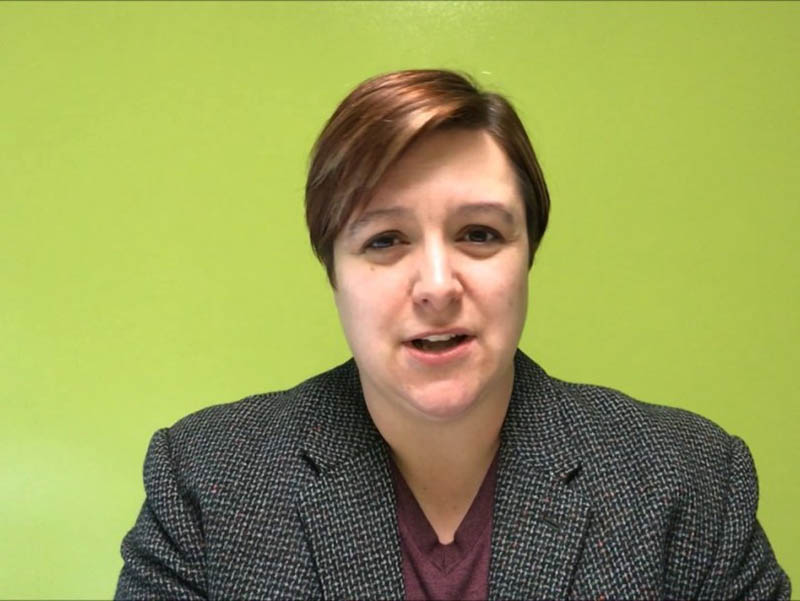
When she’s not wrangling (or being wrangled by) her two rescue dogs, Jessica is the Learning Design Manager for MSU IT and the MSU Hub for Innovation in Learning and Technology at Michigan State University. She leads a team that helps faculty, staff, and academic programs effectively integrate technology into their teaching and research through consultations, demonstrations, workshops, and hands-on development. She has worked in information technology since 1998, spanning the private and academic sectors. Project management rhetoric makes her giddy, and learning new things is her favorite.
Jessica lives in Lansing with her pretty amazing partner Ryan and has spent more perfectly good hours playing Fallout 4 than she’s comfortable admitting in polite company. But she admits it anyway because she believes in doing what you love and loving what you do. Video games aside, she loves thinking, reading, volunteering, longboarding, uke-ing and travel.
Her educational interests include assessment practices, shifting literacies in the digital age, and how UX and service design methods have the potential to transform the student experience in higher education. She tweets at @JLKnott and you can find work examples and connection information at http://www.jessknott.com.
2.1.1.3 Keegan Long-Wheeler
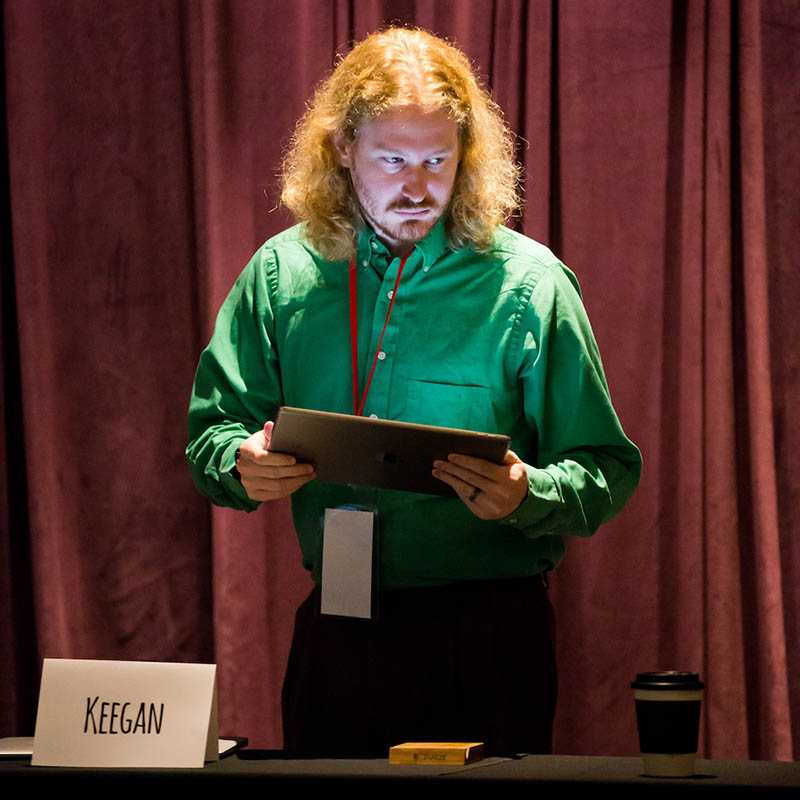
Keegan Long-Wheeler is an Educational Technologist at the Office of Digital Learning at the University of Oklahoma, who uses his background in science, pedagogies, and technical expertise to provide others with holistic solutions to their instructional and technological needs. Usually his students are faculty members at the University of Oklahoma who want to learn more about integrating technologies into their courses. He is also responsible for providing professional development, consultations, and innovative pedagogies using technology.
Keegan enjoys developing curriculum – some of his current projects include GOBLIN, eXperience Play, and Canvas Camp, right now. You can find Keegan on Twitter @KeeganSLW or on his blog at https://keeganslw.com/
2.1.1.4 Ben Scragg
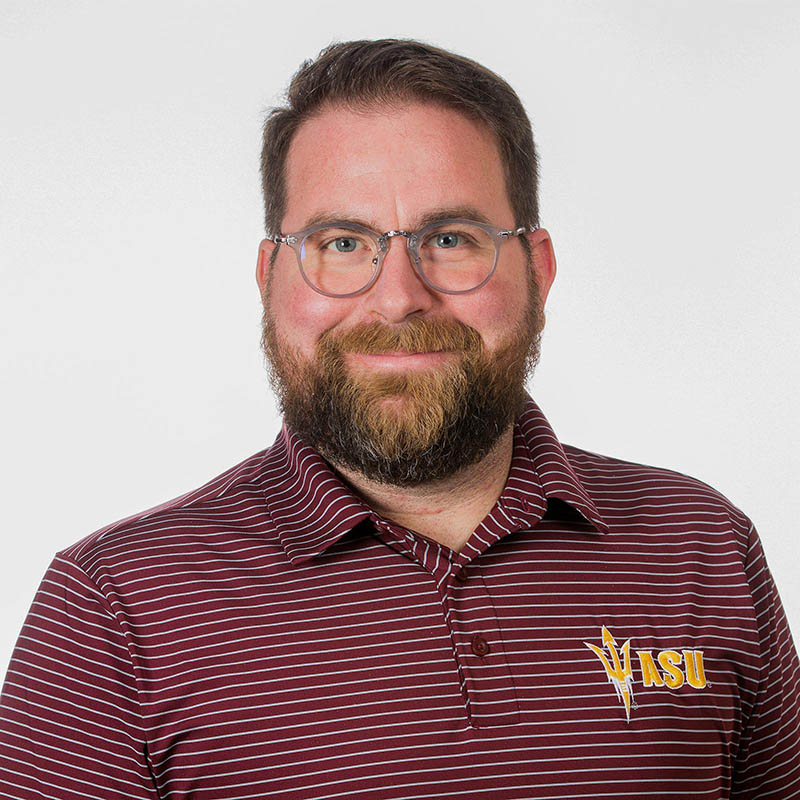
Ben Scragg (@bscragg) envisions and plans school and community design lab partnerships that support creative problem-solving and innovation in Arizona’s K12 schools. As the Lead Design Strategist in the Mary Lou Fulton Teachers College, he guides partners through the design process, from asking the right questions and building appropriate frames for problems, through testing and iterating toward solutions that seek to reimagine education. A veteran educator with Chicago Public Schools, Ben has a MA in Philosophy of Education and a MBA from The Ohio State University. A frequent collaborator with the Online Learning Consortium, he is the conference co-chair for OLC Innovate 2019. A former high school educator and learning specialist with OSU’s student athletes, Ben is also an Associate Director with the non-profit iBELIEVE Foundation, which promotes leadership development in Appalachian youth.
2.1.1.5 Clark Shah-Nelson
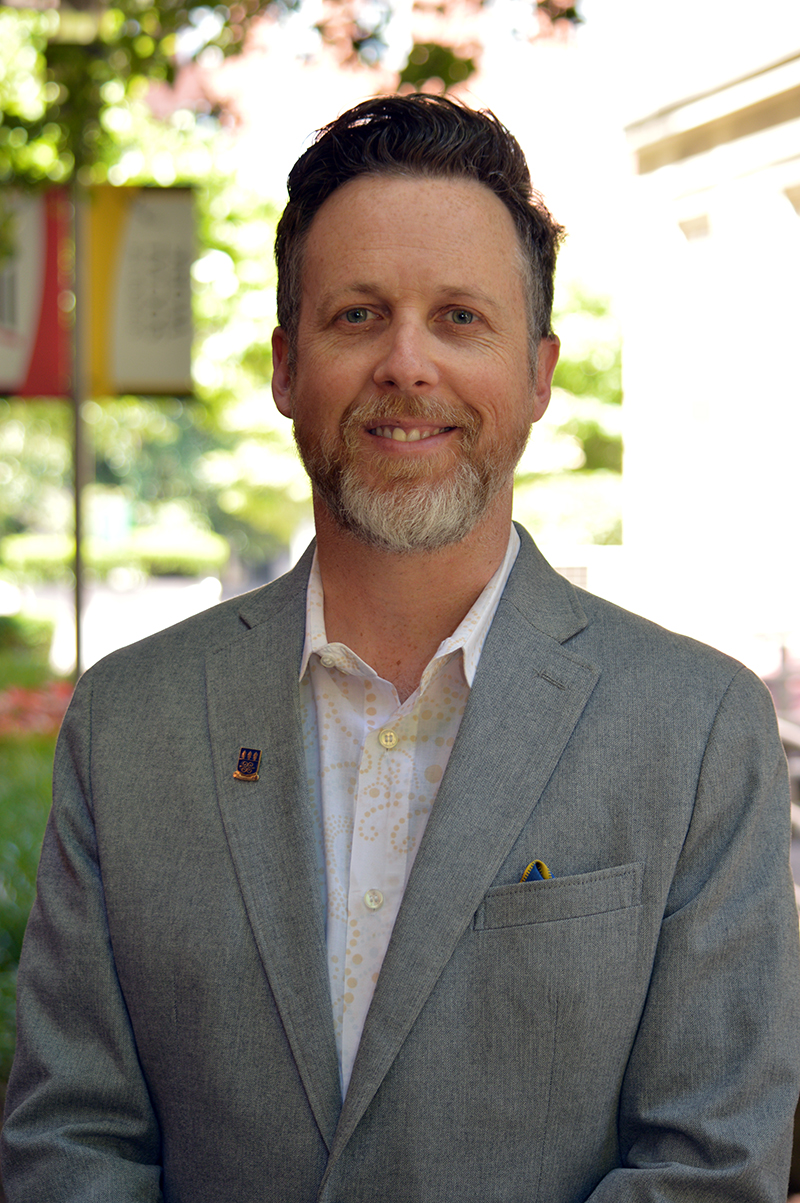
Clark Shah-Nelson serves as Assistant Dean of Instructional Design and Technology for the University of Maryland School of Social Work and is a doctoral candidate Evidence-Based Management. Clark is an eLearning instructional design & development professional with over 20 years experience in educational technology innovations: teaching, designing & leading award-winning online and distance learning teams for learning management platform implementation, training, end user support, professional development and engagement. He has presented at numerous online learning and ed tech conferences, was co-founder of the Blend-Online Educause constituent group, co-founding master chef of the Online Learning Consortium (OLC) Technology Test Kitchen, Engagement Co-Chair for OLC Accelerate, Program Co-Chair for OLC Innovate 2017, and conference co-chair for OLC Innovate 2018.
Clark has authored chapters on synchronous tools for teaching and learning support and co-authored a chapter on professional development installations. As a consultant, Clark has worked on several international projects in the realm of blended and online learning.
You can reach Clark on Twitter at @clarkshahnelson.
2.1.1.6 John Stewart
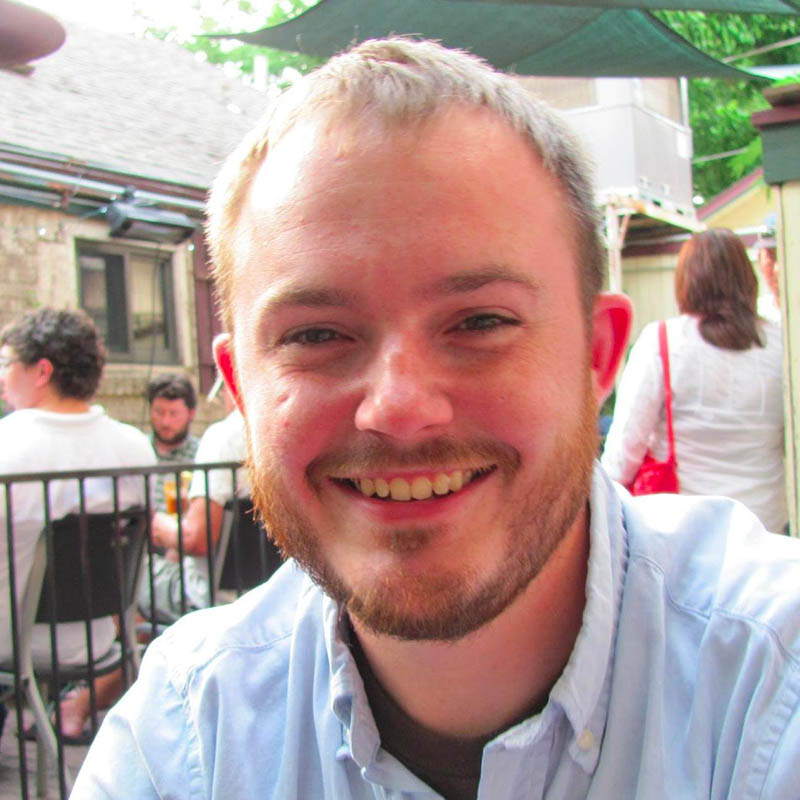
John Stewart coordinates the development and management of courses for the A&E/OU History Institute, a joint initiative between the University of Oklahoma and the History Channel. John is interested in developing digital learning environments to promote digital literacy and opportunities for undergraduate research. Before joining the Office of Digital Learning, John lectured on history of science at the University of Oklahoma and Missouri University of Science and Technology. He earned his Ph.D. in the History of Science from the University of Oklahoma.
See what John is up to on his blog at http://www.johnastewart.org/ or on Twitter at @JohnStewartPhD.
2.1.1.7 Ryan Straight
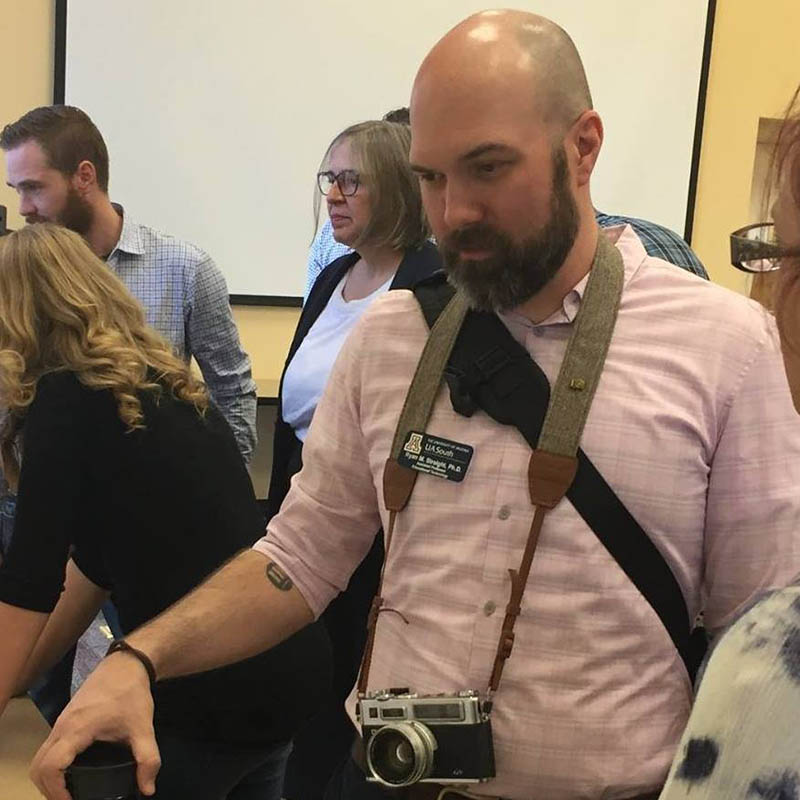
Dr. Ryan Straight is currently an Assistant Professor of Educational Technology at the University of Arizona. Much like Angela, Ryan found himself in his current (dream) job via a strange and unexpected series of events and employment: in Ohio he worked at a pool supply company, cleaned clubs and parked golf carts at a country club, vacuumed and cleaned computers in dorm rooms, shelved books in library stacks, supervised a Circulation desk at said library, managed an undergraduate course catalog, tested and managed quality assurance on a universitywide student system, then moved to Arizona to build and delivered technology-focused workshops before stepping into his current role. In addition to his faculty position in Educational Technology, he teaches in the Informatics and Cyber Operations programs, teaches for the Honor’s College, is the UA South Faculty Fellow, and writes for the Chronicle of Higher Education’s ProfHacker blog.
Ryan holds a BS.Ed in Integrated Language Arts (a fancy and confusing way of saying he was licensed to teach 7-12th grade English but never ended up using that license because he went straight into…), an M.Ed in Cultural Studies in Education (during which he studied mainly inequality and religion in the US public school system), and a Ph.D in Instructional Technology (his dissertation focused on augmented reality mobile gaming, its educational uses, and potential pitfalls), all from Ohio University. He believes in both breadth and depth of knowledge and education, clearly. His current research interests focus mainly on postphenomenology, new media, and the philosophy of technology and its applications in curriculum and instructional design.
He lives in Tucson, AZ with his wife Adriana and their three dogs, Sofie, Menchi, and Chewie. In his spare time he attempts being a photographer (recently favoring his Lubitel 166B and Yashica Electro 35G film cameras), plays too many video games and watches too much 8 Out of 10 Cats Does Countdown. He has a fondness for cooking and an addiction to tattoos. You can find him online at his website, through the The New Professor podcast that he hosts, and his Twitter account. If you want to get bi-weekly photos of his dogs and other shenanigans delivered directly to you, sign up for his newsletter, “Read, Watch Woof”.
2.2 Contributors
The power of PLNs is amplified by the diverse voices represented within the network, and finding ways to feature these voices is key to this initiative. As such, the #SquadGoalsNetwork website is populated from many different sources, to include syndicated content pulled from contributor websites. Site authors assist with loading in the RSS feeds from contributor sites and setting their posts to feed into the #SquadGoalsNetwork website. Contributors share and promote the efforts of their PLNs over social media, tagging #SquadGoalsNetwork as applicable and engaging their networks in discussion related to pertinent initiatives.